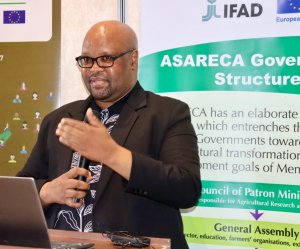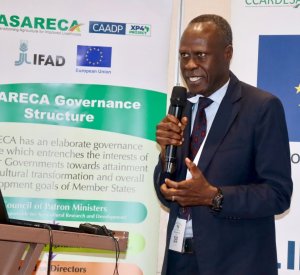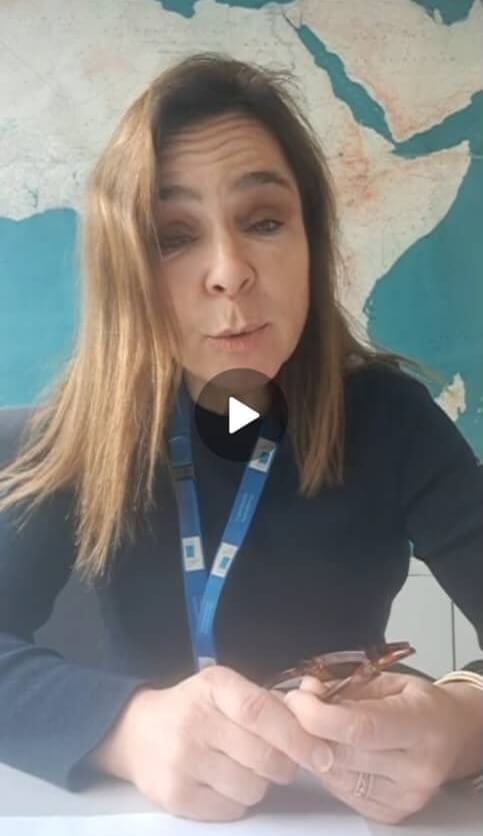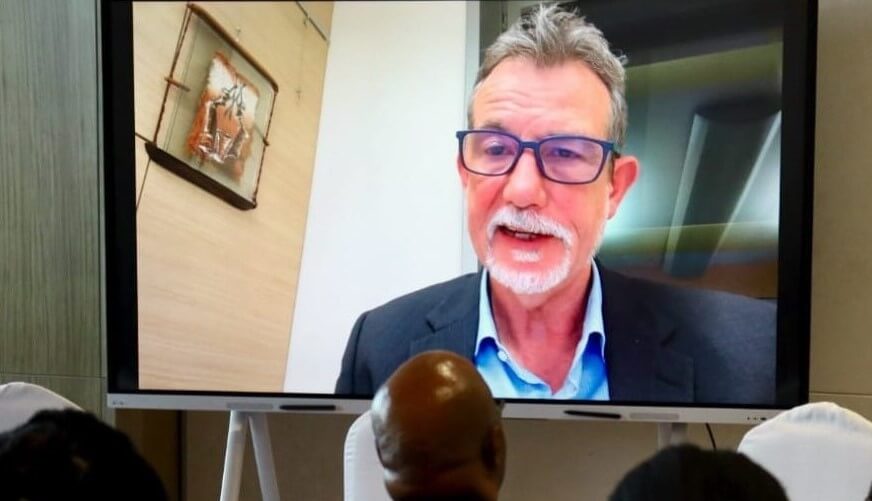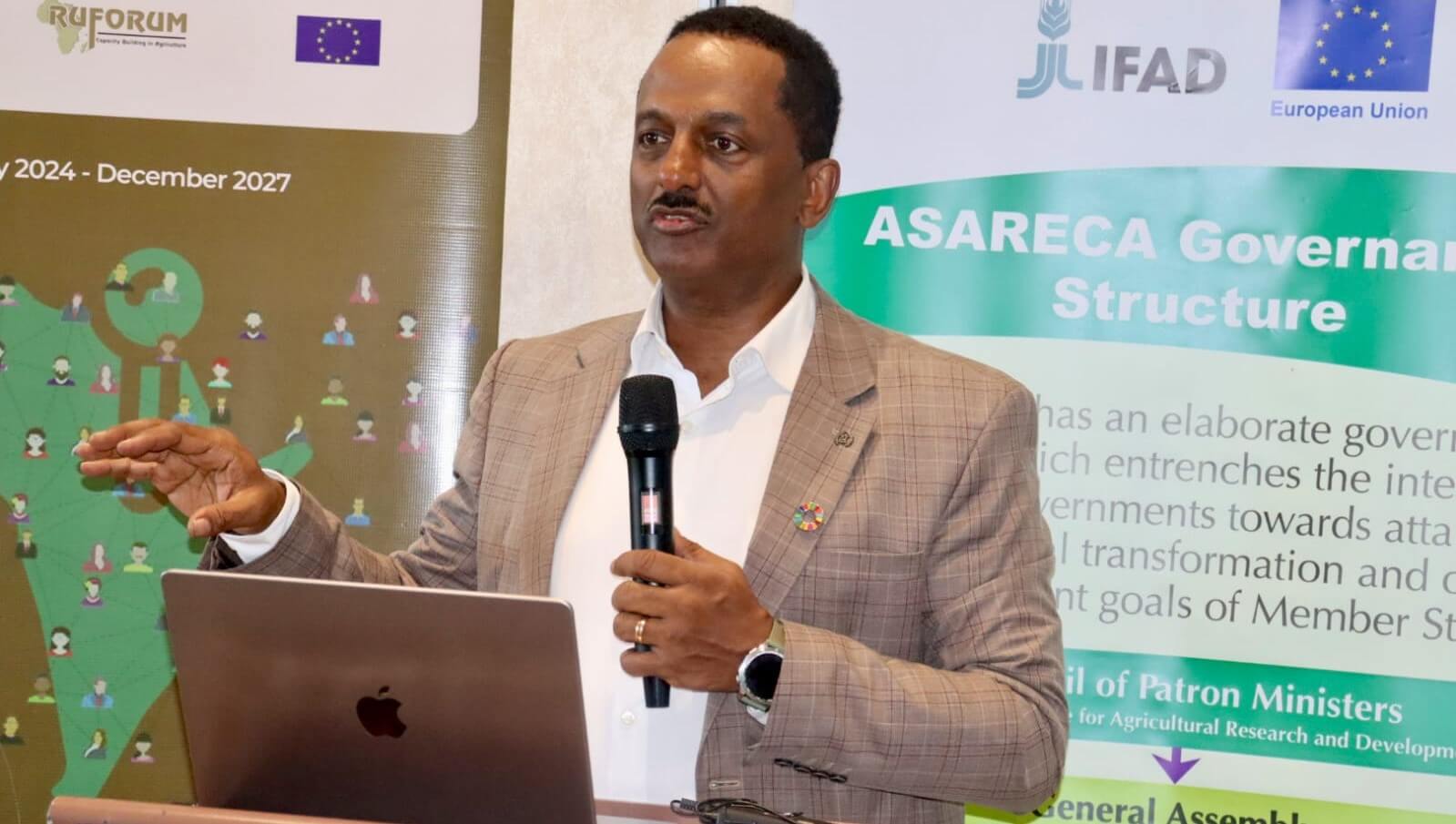Enabling Policy Environment for Agroecology takes the Spotlight at Eastern Africa Agroecology Conference
Julian Barungi, Wandabwa Wanyama & Ben Moses Ilakut
NAIROBI, KENYA –ASARECA, in partnership with the European Commission, IFAD, CORAF, CCARDESA, FARA, and AFAAS on March 25, 2025 hosted a pivotal side event during the 2nd Eastern Africa Agroecology Conference in Nairobi, Kenya. The event, titled “Regional Policy Roundtable on Enhancing the Integration of Agroecology into the Post-Malabo CAADP Process” aimed at highlighting the essential role of agroecology enabling policy environment in transforming agriculture across Africa.
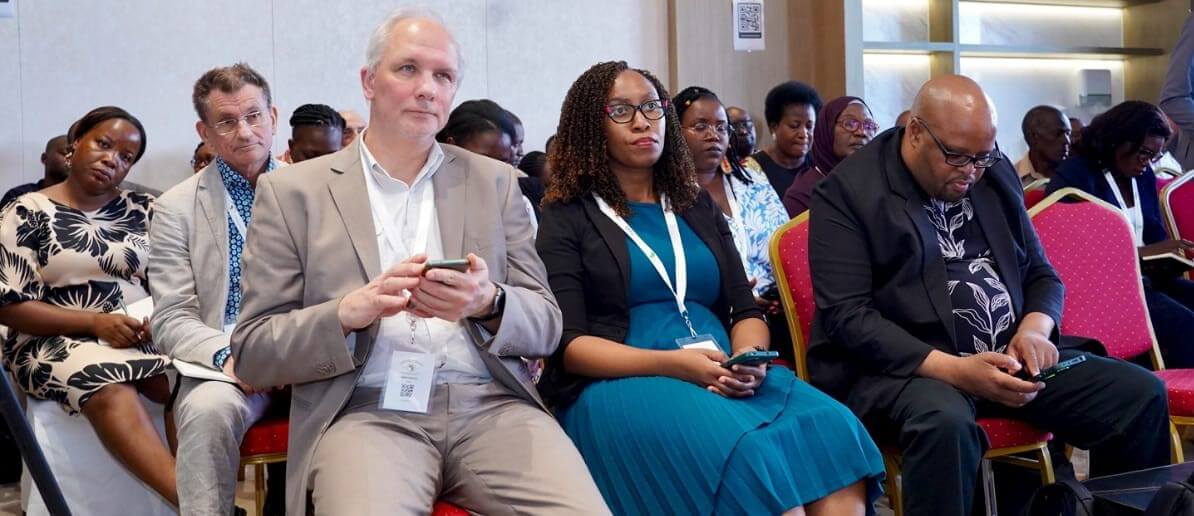
The discussions centered on how agroecology can drive long-term, sustainable growth in the region, with a focus on its economic, social, and environmental benefits. Experts, policymakers, and stakeholders explored how agroecological practices could be integrated into Africa’s broader agricultural strategy through the Post-Malabo Comprehensive Africa Agriculture Development Programme (CAADP) process. The goal was to shape a clear path forward, ensuring that agroecology is at the heart of agricultural policies and practices in Africa.
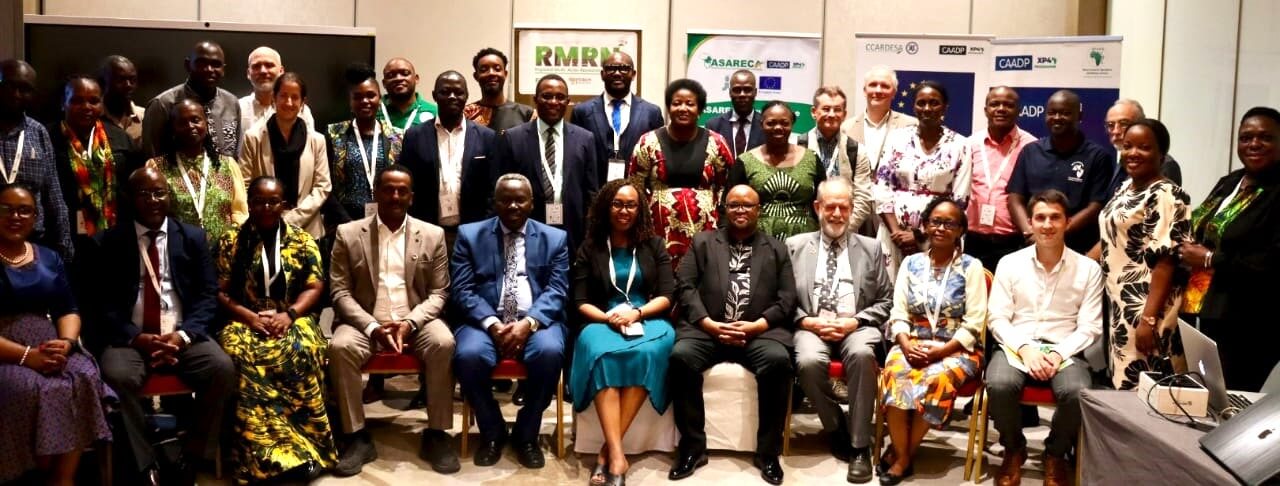
Pushing for Change: Integrating Agroecology into Africa’s Agricultural Future
In his opening address, the Executive Director of the Centre for Coordination of Agricultural Research and Development for Southern Africa (CCARDESA) and a Member of the CAADP-XP4 Advisory Committee – Professor Cliff Sibusiso Dlamini emphasized that agroecology, while a term often associated with modern agriculture, is deeply rooted in Africa’s traditional farming methods. He pointed out that agroecological practices have proven to be more sustainable and often more effective than relying on chemical fertilizers, especially in areas where small-scale farmers face financial constraints. “Agroecology isn’t just a buzzword; it’s a practical solution for food security, especially for the most vulnerable,” Professor Dlamini remarked. “This approach can help small-scale farmers increase yields and improve their livelihoods while preserving the environment.” He also stressed the urgency of embedding agroecology into mainstream agricultural policies, noting that its integration could help address Africa’s pressing food security challenges.
CCARDESA Executive Director Prof. Cliff Dlamini (L) and ASARECA Ag. Head of Programmes, Moses Odeke (R) extolled the importance of Agroecology in Sustainable Agriculture
Funding Support for Agroecology in Africa
The European Commission DG-INTPA Policy Analyst – Marion Michaud while delivering her opening remarks, emphasized the role of agroecology in building resilient and sustainable agri-food systems across Africa particularly in the face of significant challenges such as climate change, biodiversity loss and increasing food and nutrition insecurity. She added that public policies are vital in creating conditions necessary to achieve agroecology impact at scale and emphasized the importance of legal and institutional frameworks as well as finance tools in enhancing adoption of innovative approaches such as agroecology. Marion emphasized the need to put in place enabling policy frameworks for agroecology since these would address systemic barriers, incentivize sustainable practices and facilitate knowledge sharing and capacity building.
European Commission DG-INTPA Policy Analyst, Marion Michaud delivered opening remarks to participants on video call
IFAD keen on promoting agroecology
The IFAD Agricultural Research for Development Senior Technical Specialist – Fenton Reed expressed IFAD’s commitment to partnerships for integrating agroecology into implementation of the Kampala Declaration. He informed participants about two of IFAD’s main initiatives working exclusively on agroecology – the Agroecological Transitions Program and the Global Programme for Small-scale Agroecology Producers and Sustainable Food Systems Transformation (GP-SAEP) Project. Both initiatives are funded by the European Union to the tune of USD 34 million. Fenton stated that increasingly, IFAD is focusing on sustainable crop production that protects the environment, generates income and creates social equity through decent jobs.
The IFAD Agricultural Research for Development Senior Technical Specialist, Fenton Reed said IFAD is commited to partnerships for integrating agroecology into the Kampala Declaration.
Call for a Dedicated Agroecology Strategy
In his keynote address, the General Coordinator of the Alliance for Food Sovereignty in Africa (AFSA) – Dr. Million Belay echoed Professor Dlamini’s sentiments, calling for the creation of a dedicated agroecology policy to ensure that this sustainable approach is systematically adopted across African nations. He emphasized that several countries have already made strides toward integrating agroecology, and this momentum should be built upon. “There’s no denying the benefits of agroecology,” Dr. Million said. “However, we need more than just enthusiasm—we need clear policies and a strong strategy to scale this approach across the continent.” He also challenged the misconception that agroecology is anti-technology, stating that the field holds vast untapped potential for innovation and growth, particularly in Africa.
The keynote speaker at the Dr. Beley Million, the General Coordinator of the Alliance for Food Sovereignty in Africa (AFSA)
Agroecology as a Holistic Solution for Sustainable Growth
During the panel discussion, Prof. Charles Ssekyewa highlighted the importance of taking a systemic, landscape-level approach to agricultural development. He explained that agroecology is crucial for understanding the broader environmental and social factors that impact farming, which has been an overlooked aspect of agricultural development in many African countries. “Without a comprehensive understanding of the landscape we are working within, investments in agriculture risk failing to create the long-term impact we need,” Professor Million explained. “Agroecology provides a framework for understanding the complexities of farming systems and offers an integrated approach to solving challenges.”

The Role of Networks and Policy in Promoting Agroecology
Ms. Mutinta Evelyn Nketani – the National Coordinator of the Zambia Alliance for Agroecology and Biodiversity o spoke about the critical role of networks in advancing agroecology. She noted that through regional networks, stakeholders could push for high-level discussions and influence national policies. “This is a critical time for us to influence how agroecology is implemented at the national level,” Ms. Nketani said. “We have an opportunity to include agroecological monitoring in the policy-making process, which is essential for tracking progress and ensuring accountability.”
CSO Concerns for the Post-Malabo Process
Civil Society Organizations (CSOs) raised several concerns regarding the post-Malabo process. They felt that the process had been rushed, with limited participation from civil society actors and too much focus on the Green Revolution agenda which had failed in Africa. They also pointed out that agroecology was not adequately addressed and that African food cultures were largely ignored in favor of a private-sector-driven approach. “We need an agricultural system that works for all Africans, not just a select few,” said one civil society representative. “Agroecology can help make that vision a reality.” African farmers and civil society groups have actively contributed to shaping the direction of the post-Malabo process. From the first meeting in Addis Ababa to ongoing discussions in Lusaka and Kampala, their voices have been central in advocating food security, nutrition, and agroecology as key pillars of Africa’s agricultural future.
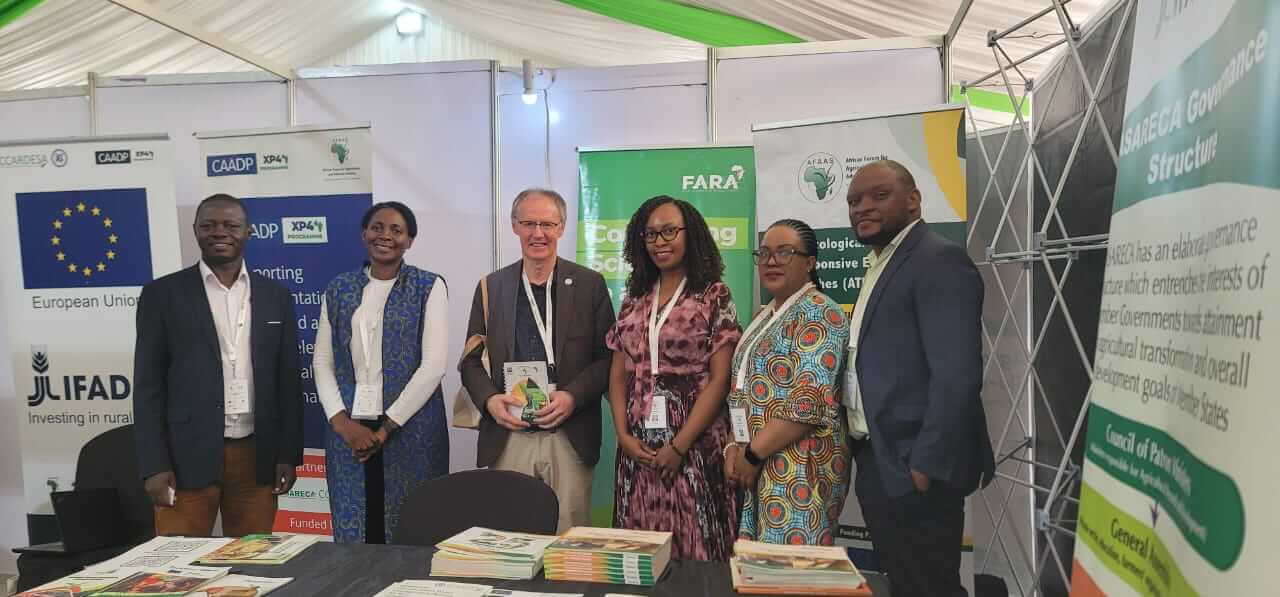
Key Steps to Strengthen Agroecology in CAADP
To fully integrate agroecology into Africa’s agricultural policy framework, experts and stakeholders put forward several key recommendations. The first is the development of a standalone agroecology policy that can be incorporated into the CAADP framework. There is also a call to create national agroecology strategies that include allocated funding to support long-term sustainability. Additionally, experts recommend establishing measurable indicators to track agroecological outcomes and progress, ensuring transparency and accountability. Finally, the establishment of regional hubs for sharing agroecology knowledge and best practices across the continent will help strengthen collaboration and innovation. As the conference came to a close, it was clear that agroecology is more than just a farming practice—it’s a vital strategy for ensuring Africa’s agricultural future. By integrating agroecology into national and regional policies, Africa has the potential to create a more sustainable, inclusive, and resilient food system.
European Union, IFAD support
The regional policy roundtable on integrating agroecology into the post-Malabo CAADP process was organized under the auspices of the Comprehensive Africa Agriculture Development Programme ex-pillar IV (CAADP-XP4) Programme, funded by the European Union and managed by IFAD. The Programme is part the European Union’s (EU) Development Smart Innovation through Research in Agriculture (DeSIRA) initiative.
Agroecology Call to Action: Transforming Agri-Food Systems for a Resilient Future
The 2nd Eastern Africa Agroecology was held on 25-28 March 2025 at Argyle Hotel in Nairobi, Kenya. The Agroecology Conference concluded with a resounding call to action aimed at reshaping agri-food systems through agroecology. Convened by Biovision Africa Trust in collaboration with the Kenyan Ministry of Agriculture and Livestock Development and key regional stakeholders, the conference brought together over 800 delegates from 42 countries across Africa, Europe, Asia, South America, and North America. The delegates emphasized the urgent need for policies, investments, and collaborations to strengthen agroecological practices, ensuring sustainability, resilience, and economic development. “Agroecology is the pathway to food security, climate resilience, and equitable access to resources,” said Dr. Jane Wanjiru, an expert in sustainable agriculture. “Governments and stakeholders must act now to integrate these principles into national policies.”
Call to Action: Research and Innovation
To drive agroecological transformation, the conference urged governments, development partners, and financial institutions to invest in research and development. “We must empower farmers as co-creators of knowledge,” emphasized Professor David Mutua. “Their traditional wisdom, combined with scientific research, can yield solutions for climate adaptation and food security.”
Call to Action: Policy and Program Development
Policy alignment was a key focus, with recommendations for structured dialogues and integration of agroecological strategies into national and regional frameworks. “Harmonizing policies across Africa is essential to creating enabling environments for agroecology,” stated Ms. Amina Yusuf, a policy analyst. “We must align our efforts with global commitments such as the Sustainable Development Goals and the African Union’s Agenda 2063.”
Call to Action: Financing Mechanisms
The conference stressed the need for dedicated funding, with a recommendation for member states to allocate 20% of their agriculture budgets to agroecology. “Funding is the lifeblood of sustainable food systems,” said Mr. John Okello, a representative from an international development organization. “Without adequate investment, agroecology will remain a vision rather than a reality.”
Call to Action: Trade and Market Development
Delegates also advocated for strengthening agroecological trade and market access, particularly through the African Continental Free Trade Area (AfCFTA). “We must develop regional standards for agroecological products,” noted Dr. Roseline Kimani. “This will open up fair markets for smallholder farmers and ensure consumer trust in organic and sustainable produce.”
Call to Action: Partnerships and Capacity Development
Collaboration and education were identified as critical drivers of agroecological success. “We must embed agroecology into our education systems,” urged Dr. Samuel Karanja. “From primary schools to universities, future generations should learn about sustainable farming practices.”
At the end of the Conference, a collective commitment emerged to translate these resolutions into actionable policies and programs. “This is not just a discussion; it is a movement,” declared conference chairperson Dr. Agnes Mwangi. “We are calling on all stakeholders—governments, financial institutions, private sector players, and farmers—to act now in securing a sustainable future for our food systems.” With these decisive steps, the Eastern Africa Agroecology Conference reaffirmed its role as a catalyst for agroecological transformation, setting the stage for a more resilient and equitable agricultural landscape across the region and beyond.

